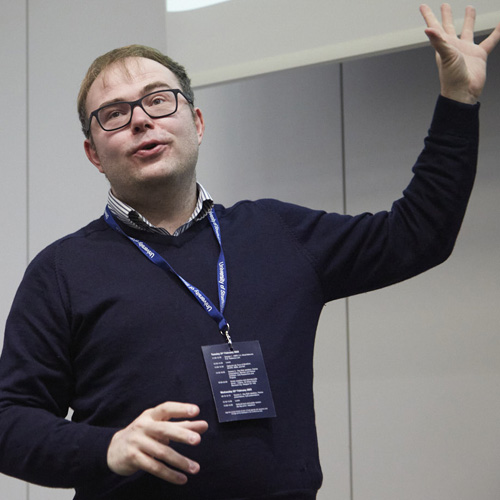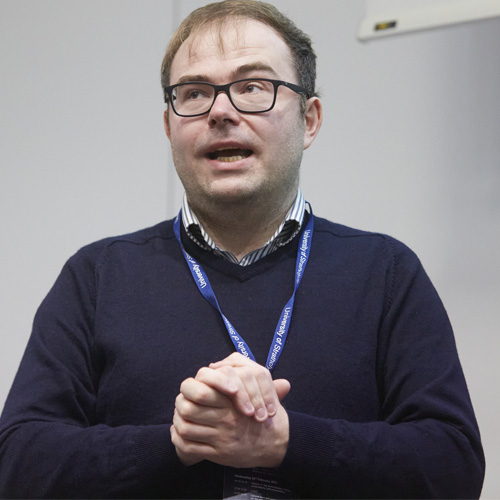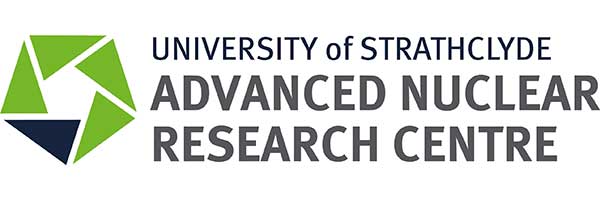Strathclyde's expertsSpotlight on: Professor Charles MacLeod
The Advanced Nuclear Research Centre (ANRC), as a 'Hub for Nuclear Research' at the University of Strathclyde, works with colleagues from various disciplines:
Professor Charles MacLeod is the Babcock International Group / Royal Academy of Engineering Chair in Sensor-Driven Automated Welding and director of the Sensor Enabled Automation & Robotics Control Hub (SEARCH).
Hear more from Charles on our YouTube channel
Charles shares with us his thoughts on the impact nuclear can make to energy and decarbonisation.
"When we look at our energy strategy in the UK and further afield internationally, we've seen significant pressures on the energy network and that's translated through to an increase in the cost of energy and bills that households are paying.
The real challenge now is as we decarbonise our network and we move to net zero. There's a significant opportunity for nuclear to play a credible and key role in both reducing the carbon content and reducing the cost of energy while improving both the economics of the argument and also the environmental factors."
Challenges in the Nuclear Sector
"I think one of the challenges that we see in the nuclear sector is some resistance to nuclear power that is there from a political and social level. As a saf, and well controllable base load energy system we should look at the opportunities and the benefits it could bring to decarbonise our network and reduce the cost of energy.
When we look at the challenges we see opportunities in the implementation of new technology. So, when we bring in advanced modular reactors and small modular reactors there are significant opportunities to bring those online quicker, and using cutting edge innovation and technology to enable that to happen sooner and at lower cost.
Research is great at addressing challenges, including sector grand challenges, and to use research innovation to deliver meaningful change at pace and scale. We are keen to use our research, knowledge and research capabilities for advancements to better society and bring on those new energy sources quicker, cheaper, and in a safe manner."

Working with the University
‘When we look at the nuclear sector and other sectors across the University, the sum of the parts is far greater than the individual core elements. Having a coordinated strategy, both at Strathclyde, locally, nationally, and then internationally allows the world and society to fully benefit and exploit all the advantages.
The nuclear sector is not a single discipline, it's a very interdisciplinary topic. We have:
- nuclear physicists
- mechanical engineers
- electrical engineers
- software engineers
- civil engineers
- and many more other engineers.
"One solution and one discipline aren’t going solve our grand challenges and bring that safe, environmentally friendly and low-cost energy system.
Working together we can solve the grand challenges much quicker and much more effectively."

Future of Research in the ANRC
"At Strathclyde University the Advanced Nuclear Research Centre is the focal point for nuclear research within the university. It's a significant, research capability and predominantly focused on through-life asset management, from cradle to grave, improving the operational performance of nuclear power plants from design operation through to decommissioning. At Strathclyde, we cover that full research gamut with particular strengths in:
- data analytics
- AI
- industrial informatics inspection
- concrete remediation and sensing.
This variety of disciplines benefits that through life asset management model.
One of the very interesting things with Strathclyde was that we were founded in the Enlightenment, as a ‘place of useful learning’ and with that we look to deliver real impact to society at pace and at scale.
We do that by working with our industrial partnerships and fundamental researchers, who are grounded in reality and driven by industrial challenges. We then translate that through the technology readiness levels and proving that up, building confidence and getting innovation out into industry as quickly as possible to benefit society."
